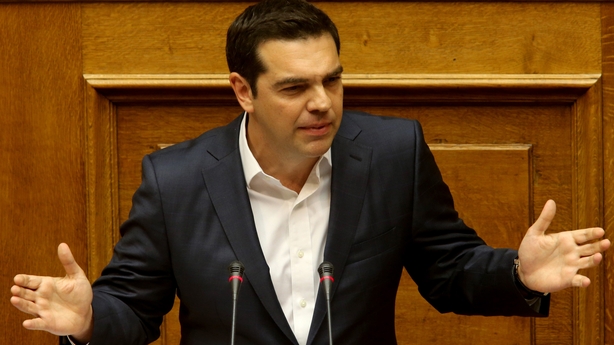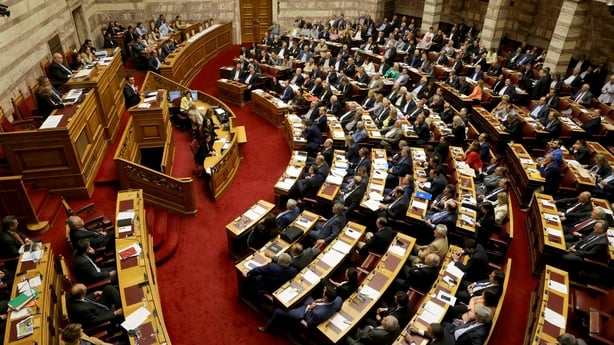Greek lawmakers have adopted fresh spending cuts and tax hikes ahead of a crunch Eurogroup meeting expected to unlock much-needed bailout funds for the debt-ridden country.
The 7,000-page bill that raises the sales tax cap and introduces a contingency mechanism to slash spending further in case of budget overruns was passed thanks to the Syriza-led coalition government's slim majority in parliament, according to an AFP count.
All 153 of the government coalition's MPs voted in favour, while outside the parliament building in Athens more than 10,000 people protested against a recent string of unpopular reforms.
The contingency mechanism in the new legislation, labelled "the cutter" by Greek media and designed to cut spending if the country fails to meet fiscal targets in 2018, is of chief interest to Greece's international creditors.
Ahead of the vote, Greek prime minister Alexis Tsipras said: "European leaders get the message that Greece is sticking to its promises. Now, it's their turn."
People across Greece's political spectrum have criticised the latest in a series of sweeping reforms for the austerity-weary nation.
"No one in Greece will remain unaffected by the typhoon of the new measures", the leader of the New Democracy main opposition party said in parliament.
"The measures we are talking about aren't pleasant. Especially for citizens that have already endured a lot," Mr Tsipras admitted. But he said "this is the first time that the sacrifices seem to have a prospect of paying off."


Greece and its European creditors are locked in talks on how to reduce the country's debt burden, which the International Monetary Fund (IMF) said must happen if it is to contribute any more of its own funds.
But EU economic powerhouse Germany has been deeply opposed to alleviating any of Athens' debt.
Tsipras said "this is the first time the debt issue is discussed with the appropriate attention within the international institutions".
Greece urgently needs the next tranche of bailout funds to repay big loans to the European Central Bank (ECB) and IMF in July, and has already fallen behind in paying for everyday government duties and public sector wages.
Eurozone finance ministers are set to discuss a deal for Greece at a closely-watched meeting in Brussels on Tuesday.
German financial daily Handelsblatt has said Athens could receive between €9-€11 billion if a deal is struck.

